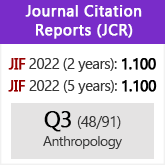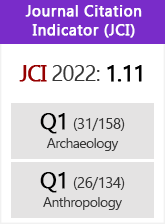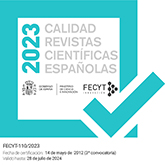Production and exchange during the Portuguese Chalcolitic: the case of bifacial flaked stone industries
DOI:
https://doi.org/10.3989/tp.1998.v55.i2.303Keywords:
Production, Exchange, Lithic Tools, Specialization, Standardization, Complex Society, Portugal, Neolithic, ChalcolithicAbstract
This study focuses on the economic organization of bifacial flaked stone industries of the Late Neolithic/Chalcolithic Portugal. It is often claimed that social hierarchies first appeared in Western Iberia during this period (ca. 3500-2500 BC). The specific research goals are: determining the production repertoire at lithic production sites, examining the possibility of craft specialization (with particular regard to artifact standardization), and investigating the geographic distribution of artifacts, in order to detect evidence of centralization. The analyses show that the organization of economy differed markedly between different artifact classes. Production of subsistence-related lithics was decentralized and they circulated through local exchange networks, although some of them could enter long-distance exchange. Prestige-related items were exchanged over large distances and apparently were produced by specialists. The level of specialization and its importance for the economy remained modest. There is no evidence for large-scale sociopolitical integration.
Downloads
Download data is not yet available.
Downloads
Published
1998-12-30
How to Cite
Forenbaher, S. (1998). Production and exchange during the Portuguese Chalcolitic: the case of bifacial flaked stone industries. Trabajos De Prehistoria, 55(2), 55–71. https://doi.org/10.3989/tp.1998.v55.i2.303
Issue
Section
Articles
License
Copyright (c) 1998 Consejo Superior de Investigaciones Científicas (CSIC)

This work is licensed under a Creative Commons Attribution 4.0 International License.
© CSIC. Manuscripts published in both the printed and online versions of this Journal are the property of Consejo Superior de Investigaciones Científicas, and quoting this source is a requirement for any partial or full reproduction.All contents of this electronic edition, except where otherwise noted, are distributed under a “Creative Commons Attribution 4.0 International” (CC BY 4.0) License. You may read here the basic information and the legal text of the license. The indication of the CC BY 4.0 License must be expressly stated in this way when necessary.
Self-archiving in repositories, personal webpages or similar, of any version other than the published by the Editor, is not allowed.
















